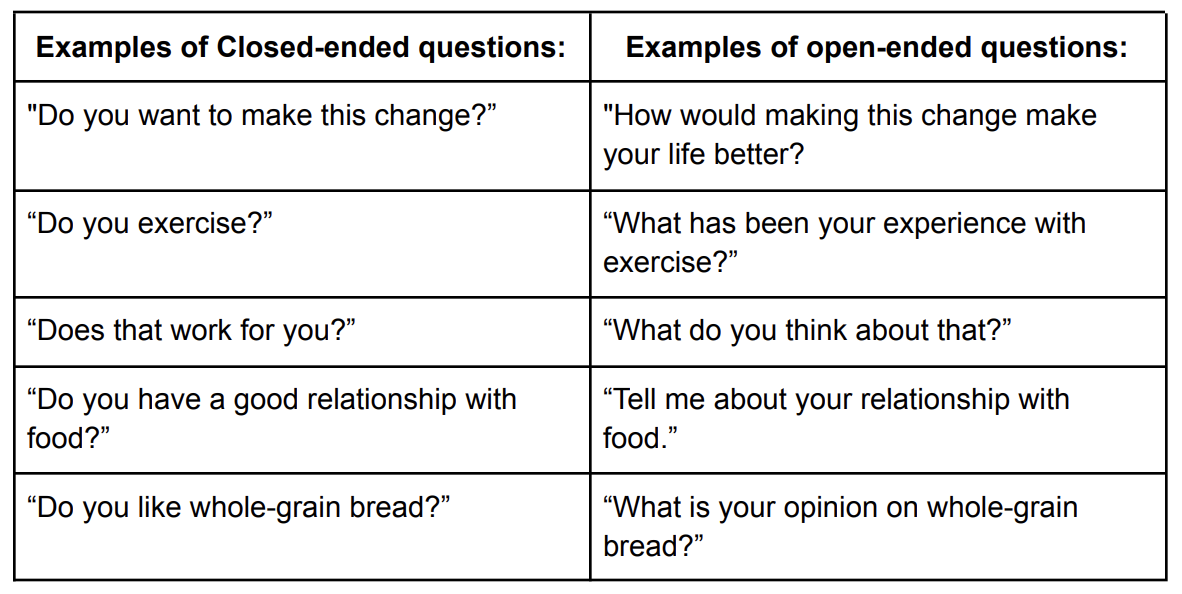Motivational Interviewing Techniques
OARS (4 Core Techniques)
OARS is a skills-based, patient-centered model of interactive techniques used in Motivational Interviewing. These skills include verbal and non-verbal responses and behaviors that need to be culturally sensitive and appropriate. “OARS” stands for
Open-ended questions
Affirming
Reflective listening
Summarizing
Open-Ended Questions: To encourage a patient to share all information that may be helpful, open-ended questions are preferred over closed-ended questions. Closed-ended questions will elicit only yes-or-no responses or a very short answer, while open-ended questions will encourage the patient to respond with a variety of answers that are more specific.
Affirmations:
Affirmations are statements and gestures that recognize patient strengths and acknowledge behaviors that lead in the direction of positive change, no matter how large or small. Affirmations build confidence in one's ability to change. Examples of affirmations:
“You are really determined to take care of your health”
“It takes a lot of courage to keep showing up for yourself”
“You put a lot of work into trying out XYZ this week”
Reflections:
Reflections are paraphrases of what the patient is saying that often go beyond mirroring their words to reflect underlying meaning. In motivational interviewing, reflective listening is the primary skill used to demonstrate empathy, interest and understanding. It can also influence behavior change and help to clarify what the patient is thinking, manage conflict, explore reasons for change and provide affirmation.
Examples of Reflections:
Patient: “I am sick of having to keep track of my blood sugar.”
RD: “Diabetes is hard to manage and you are getting frustrated.”
Patient: “I don’t like purging, but it really reduces my anxiety.”
RD: “On one hand, purging brings your relief, and on the other hand you’re concerned about how it impacts your health.”
Summaries:
Summaries are extended reflections offered now and then throughout the session to piece together different statements the patient has made. Doing so demonstrates active listening while allowing for transitions to new topics, as needed.
Example of Summary:
RD: "Overall, you sound very committed. You came to this session because your doctor insisted you meet with a dietitian. Now that you've shared the many ways your life and health might improve if you were to make some changes to the foods you eat, it sounds as if you're interested in exploring some new cooking techniques at home. You mentioned that because you're a busy working mother, you could only successfully make a change if it doesn't take any more of your time.

